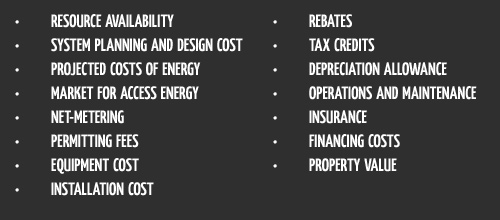- Photovoltaic
- Building-integrated photovoltaics (BIPV) are photovoltaic materials that are used to replace conventional building materials in parts of the building envelope such as the roof, skylights,or facades.
- Solar Thermal
- The solar thermal systems used today combine the most effecient techniques for capturing the sun’s heat with modern plumbing systems to produce cost effective hot water and reduce the need for gas or electricity to heat water.
- Solar Cooling
There are multiple alternatives to compressor-based chillers that can reduce energy consumption. Solar thermal energy can be used to efficiently cool in the summer, and also heat domestic hot water and buildings in the winter.
- Windpower
- Wind-generated power is attractive as an alternative to fossil fuels, because it is plentiful, renewable, widely distributed, clean, and produces no greenhouse gas emissions.
- Biofuel
- Biofuel refers to the technical systems through which biomass is produced, converted and used as an energy source. It already provides the majority of renewable energy worldwide and is considered to have the potential to provide a large fraction of world energy demand over the next century.
An energy-efficient organization goes a step further by using ecologically friendly renewable resources to fuel its energy needs. There are two ways for acquiring power from renewable energy sources : become a buyer or a producer. The production of energy from renewable resources varies by resource type, the local availability of the resource, feasibility and ball park costs. Here are some considerations our engineering team will take into account to evaluate the suitability and economic feasibility of your project :








